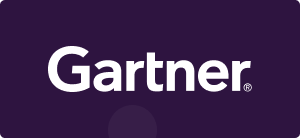- Login
- Search
- Contact Us
-
Have a question? Our team is here to help guide you on your automation journey.
-
Explore support plans designed to match your business requirements.
-
How can we help you?
-
- AI
AI Without the Hype From pilot to full deployment, our experts partner with you to ensure real, repeatable results. Get Started
- Automation Anywhere AI
-
- Solutions
Featured Agentic Solutions
Accounts Payable Invoice automation—No setup. No code. Just results. Accounts Payable
Customer Onboarding Scale KYC/AML workflows. Customer Onboarding
Customer Support Keep queues moving, even at peak load. Customer Support
Healthcare RCM Revenue cycle management that runs itself. Healthcare RCM
- Products
Platform Features
- Agentic process automation (APA)
- Robotic Process Automation (RPA)
- View all Products
-
- Resources
Get Community Edition: Start automating instantly with FREE access to full-featured automation with Cloud Community Edition.
Featured
 Named a 2025 Gartner® Magic Quadrant™ Leader for RPA.Recognized as a Leader for the Seventh Year in a Row Download report Download report
Named a 2025 Gartner® Magic Quadrant™ Leader for RPA.Recognized as a Leader for the Seventh Year in a Row Download report Download report- Become an Expert
- Developer Tools
- Get Support
- View all resources
-
- Partners
Find an Automation Anywhere Partner Explore our global network of trusted partners to support your Automation journey Find a Partner Find a Partner
- Find a Partner
- For Partners
-
Blog
Top Emerging Opportunities for Healthcare Automation
Navigate to content
Healthcare’s digital transformation includes multiple potential applications of automation. Which of these are generating the most interest?
Attended automation
The healthcare workforce is a unique population. Healthcare requires a great deal of specialized training, knowledge, and experience. In the past, Robotic Process Automation (RPA) in healthcare has meant the automation of back-office processes in paperwork-intensive areas such as finance & accounting and HR. These areas are horizontal, and they apply to many industries.
Due to recent events, healthcare organizations are expanding their use of automation, a fundamental tool for digital transformation, to encompass vertical applications. But as they apply automation to these areas, they find that automation’s best use is not to replace expert judgment or decision-making but to augment it. This is attended automation.
Attended automation will play an increasing role in healthcare. Automation will boost productivity by giving workers a suite of powerful automations to take away mundane, low-value activities, save time, and let them spend more time on what the organization really values. These are activities that require creativity, judgment, decision-making, problem-solving, and exception handling.
Interoperability
Healthcare systems have accumulated dozens, if not hundreds or thousands, of legacy IT systems of various vintages that do not communicate with each other. The lack of interoperability has been a significant challenge for decades.
Most organizations find it difficult to obtain a high-level, comprehensive view across their enterprise because of data silos and barriers. That’s why it’s been challenging, for instance, to do financial forecasting or track outcomes in healthcare, which require the ability to track impact across different business units. The recent pandemic crisis brought this gap into focus. A crisis demands good insights, coordination, and collaboration within and between organizations.
Automation can play a huge role in enabling interoperability since bots can access incompatible systems with the right permission and aggregate data for dashboards and analytics. What could you do if you were able to extract information from multiple systems? You might be able to predict impending staffing or inventory shortages based on demand trends, or identify bottlenecks in workflow, or correlate factors affecting the quality of care.
Monitoring
Healthcare is one of the most heavily regulated industries because patient lives are at stake. Strict regulatory requirements span the entire breadth of healthcare and involve quality of care, safety, security, federal and state agency requirements, medicolegal requirements, and many other areas.
What do all these regulatory requirements have in common? They all require monitoring, either in real-time or periodically. The monitoring function is typically very expensive; highly paid healthcare professionals go through hundreds of charts or track clinical workflows.
Automation offers a unique capability to monitor, report, and analyze multiple processes in a healthcare organization. It can generate highly granular audit trails for regulators, payers, and employers.
Every software robot (‘bot’) has the ability to observe and record. Depending on its placement, a bot can tell you who accessed what processes, what permission was used, how long it took, what decisions were made along the way, and what the outcome was. This is potentially helpful in a regulated environment. Furthermore, a bot can even reduce risk by automating processes prone to error or exposure, such as transfer patient health information without human intervention, reducing the risk of a security breach.
Attended automation, interoperability, and monitoring will save time and resources while standardizing processes that need to be more consistent. That will give patients a better care experience and healthcare workers greater job satisfaction. Just as important is that automation will allow healthcare organizations to rapidly scale up or down to mitigate future uncertainties and maintain agility.
Support your Healthcare Team with Automation.
About Automation Anywhere Staff
Get to know the Agentic Process Automation System.

For Students & Developers
Start automating instantly with FREE access to full-featured automation with Cloud Community Edition.



